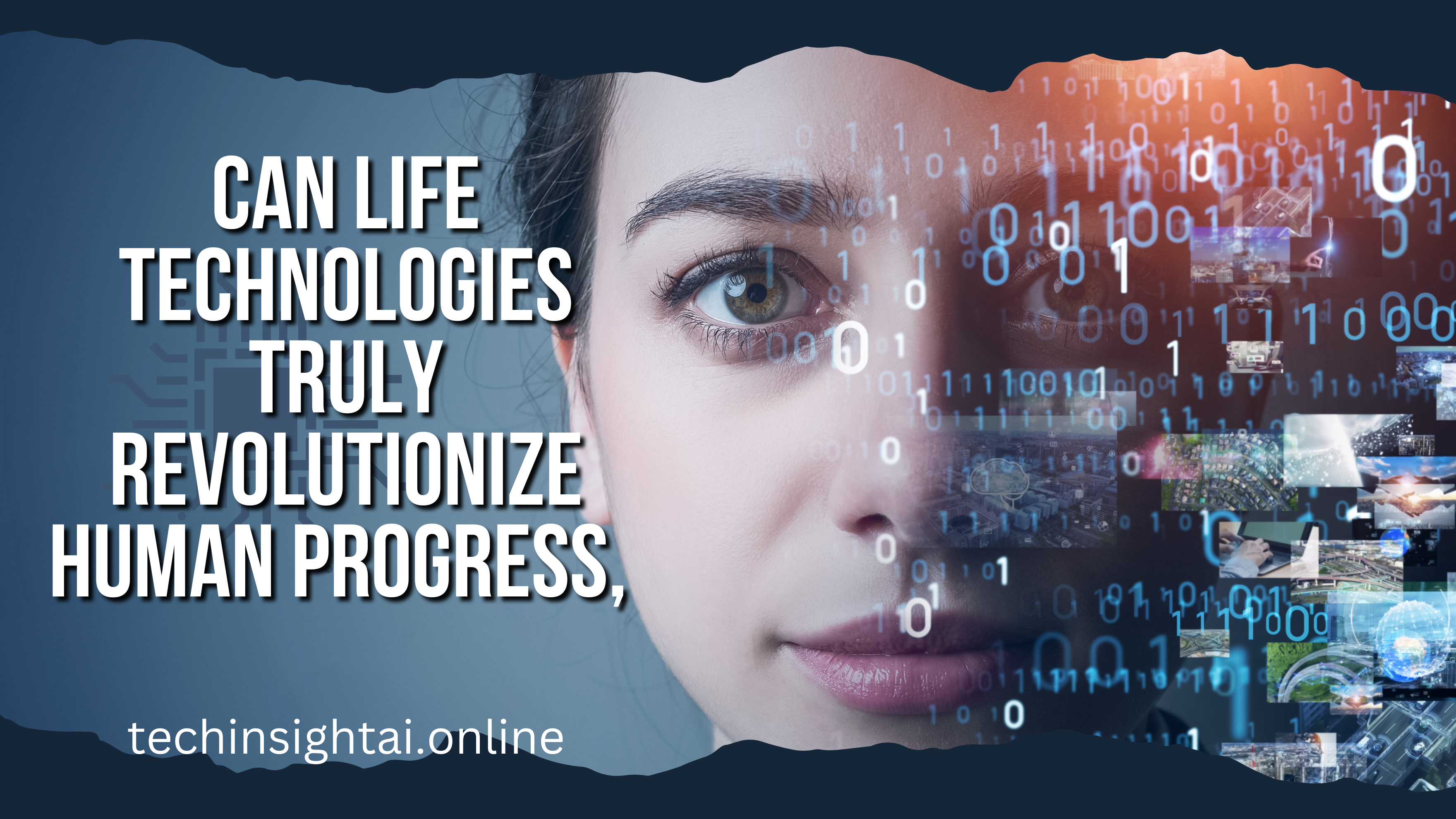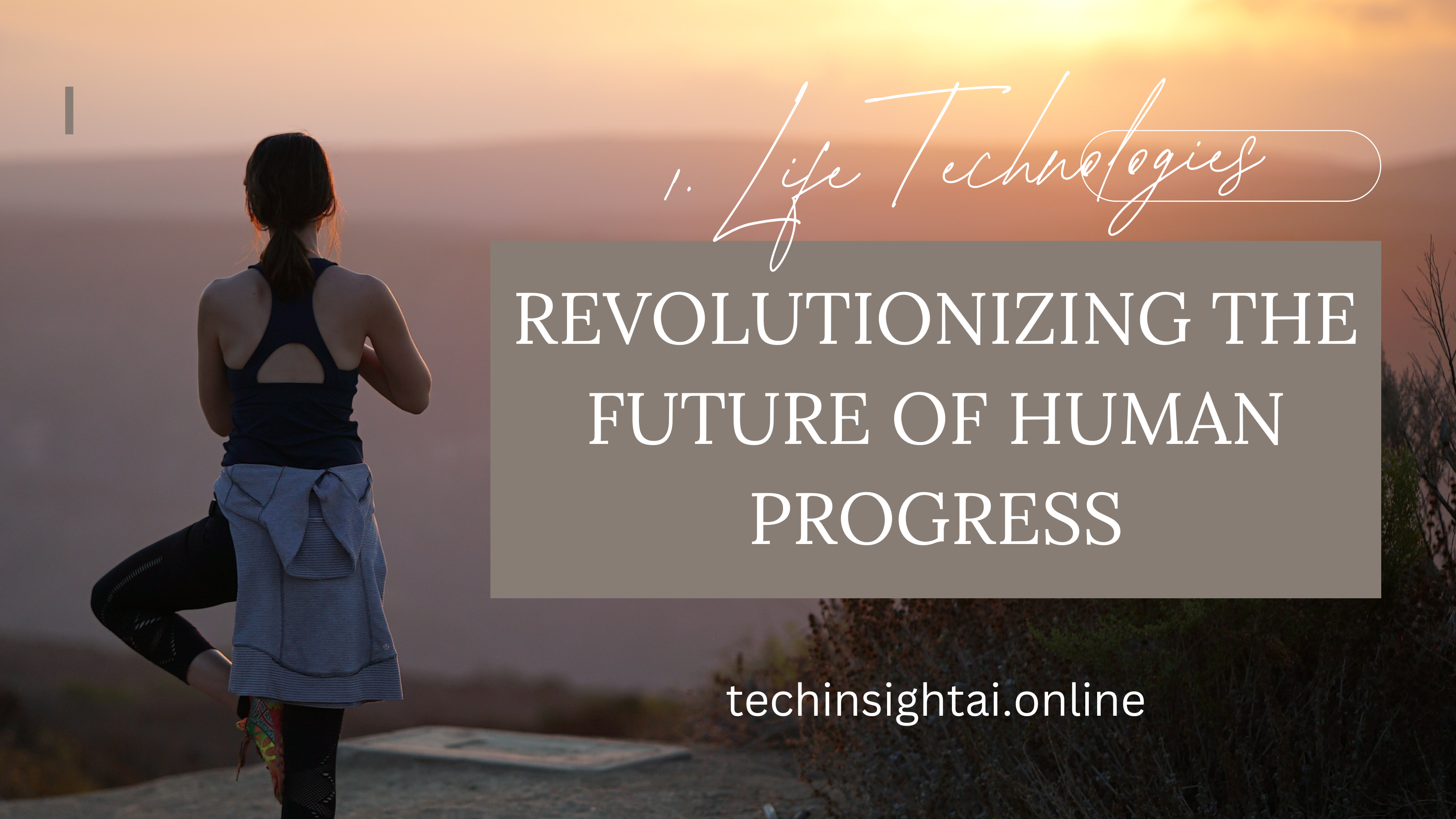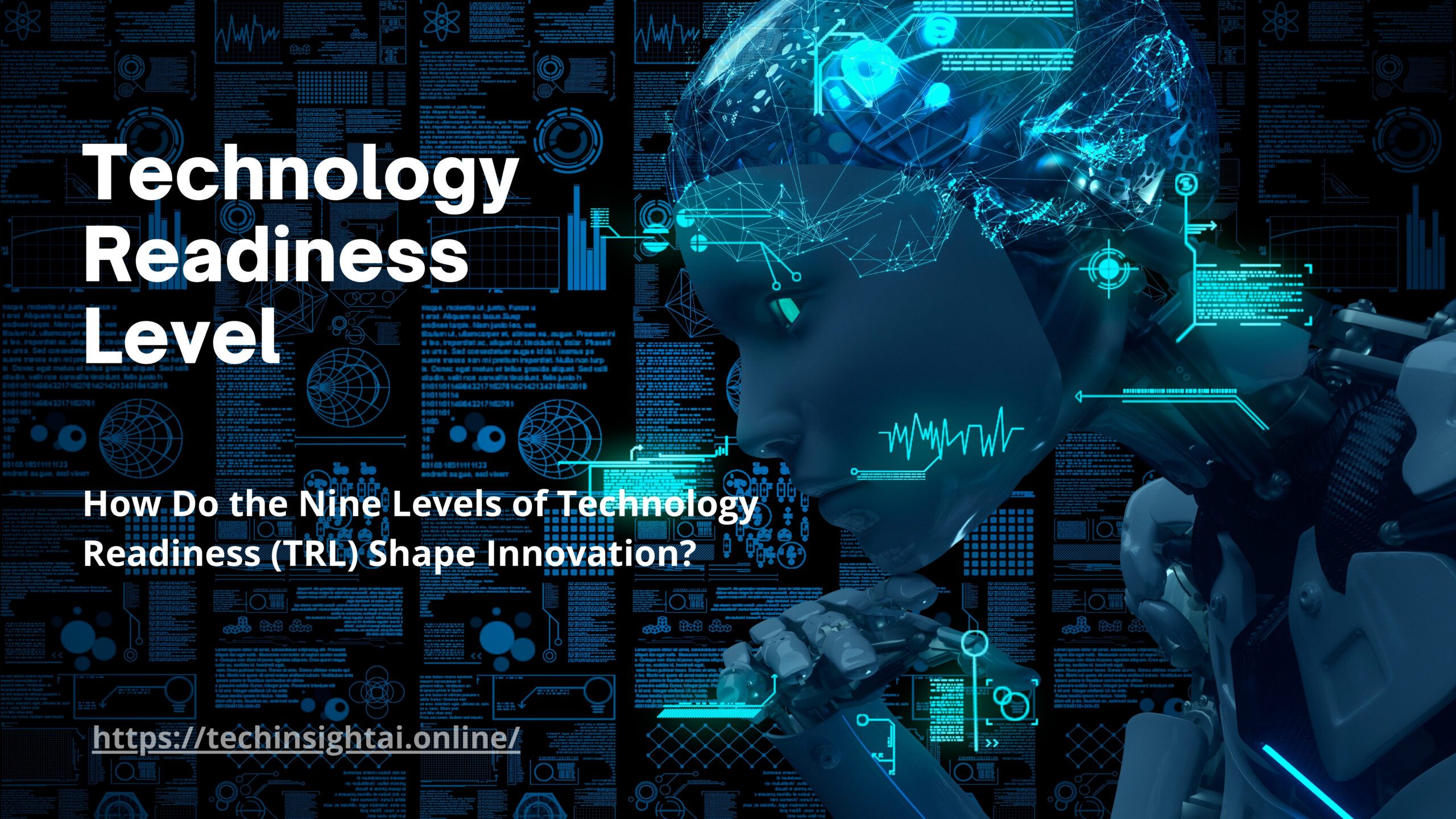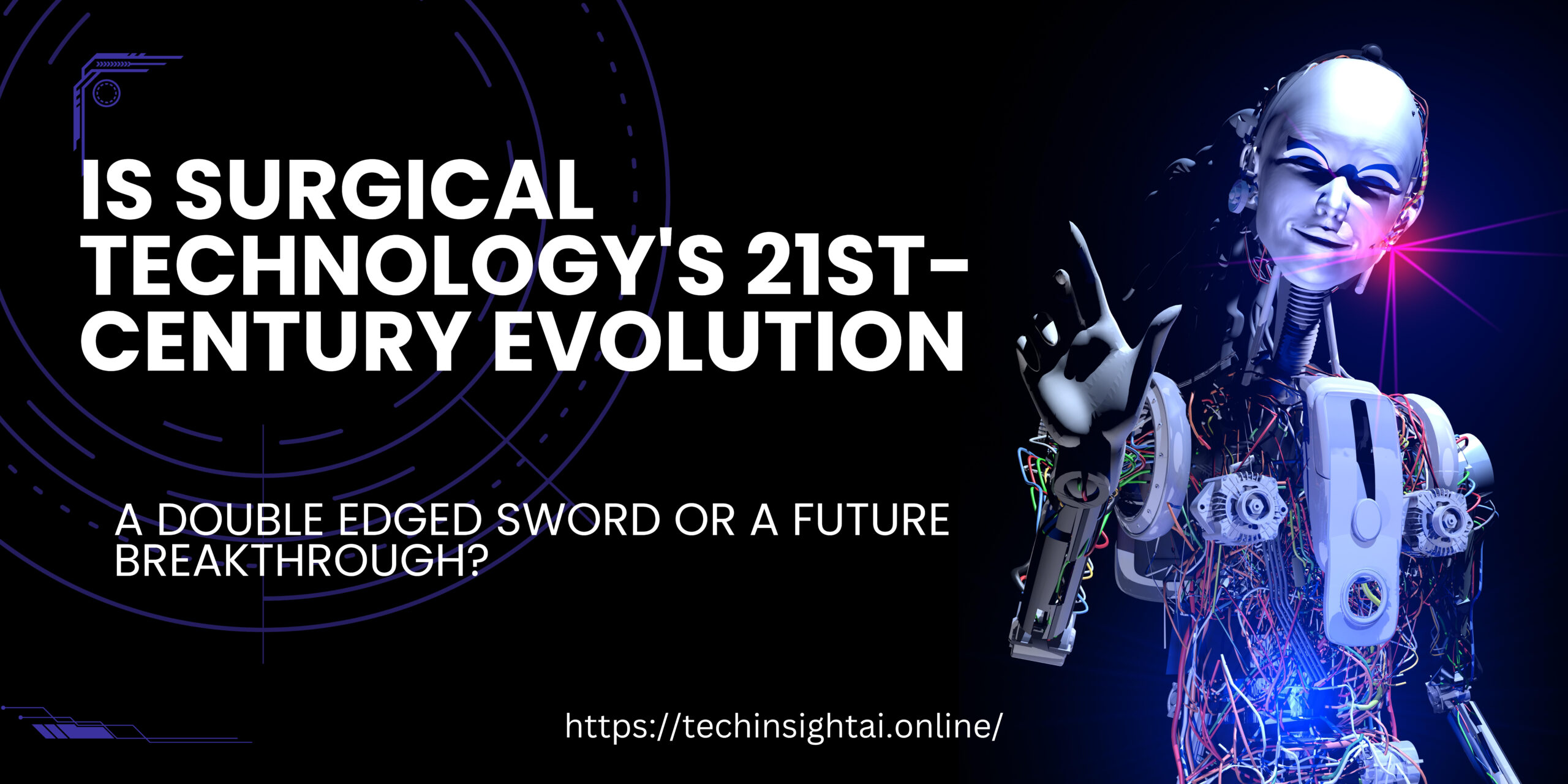Life Technologies: Transforming future of human advancement
Introduction to Life Technologies
The concept of life technologies can be defined as a number of technologies that enhance the quality of life creating opportunities for developing new health care provisions and exploring the frontiers of possible scientific achievements.

With abilities that span in biotechnology, genetic engineering, medical devices, and Artificial Intelligence in healthcare among others, life technologies are among the most promising cutting edge technologies of the modern epoch. As we move into the deeper parts of the 21st century these technologies are revolutionizing life, disease, and the environment.
Evolution of Life Technologies
Technological improvements in the aspects of life has enhanced in the past several decades. New molecular biology, genomics and biotechnologies which have seen a faster growth in the last few years have provided the basis for radical transformations in medicine, agriculture and environmental disciplines.
During the late twentieth-century the breakthrough of DNA’s structure along with advance genetic engineering brought a revolutionary change in life technologies. During this period scientists embarked on recombinant DNA technology thus accomplishing genetic engineering through producing GMOs. These early developments led to a more evolved applications for gene editing technology generally including CRISPR-Cas9 for precise genome editing.
Recent Advances in Technologies Supporting Life
Genomics and Precision Medicine
Life technologies are anchored on genomics, which is the examination of an organism’s genome or all the genetic material. The Human Genome Project which was achieved in 2003 was a unique project which started new ways for learning about genetic disease and creating rational therapy for such diseases. Modifications in genomics result in precision medicine- medical treatment that is personalized according to characteristics of the patient, today.
As we have seen, precision medicine is gradually shaking the treatment approach of cancer, cardiovascular diseases, and rare genetic diseases. Finally, through understanding the patient’s genetic map, physicians can now prescribe individualized treatment tailored to meet the patients’ needs that are free from side effects as compared to other conventional therapies.
CRISPR and Gene Editing
Another competitor offering life technologies is CRISPR-Cas9 which has revolutionized life technologies in the market. It is a highly efficient site-specific recombinase system enabling bio researchers to make changes to the genome of living organisms. However, it has diverse uses from correcting genetic disorders to enhancing the breed of our crops, including fighting climate change.
In medicine, CRISPR is applied to invent treatment for genetic related diseases such as sickle cell anemia and cystic fibrosis. Moreover, scientists are investigating its possible application in production of enhanced plants and animals that are less susceptible to pests and diseases, hence can significantly cut on the use of chemical pest control agents in crops and animals respectively.
Artificial Intelligence in Life Technologies
Endeavors of AI are increasingly penetrating life technologies more so in the field of health and medicine. With the help of AI algorithms, it is possible to analyse huge amounts of medical information, as well as find patterns and make certain conclusions that are almost impossible to make by human beings within reasonable given time.
As one of the areas in life technologies AI has found a great use case in drug discovery. Conventional drug discovery is thus a lengthy and expensive process and this can be done much quicker using AI to guess how any chemical compound will react with biological targets. This does not only help in the reduction of time taken but also in the reduction of cost which in the long run helps in making available life saving drugs.
The Application of Life Technologies Centre to the Healthcare Industry
Smart Clothing with Remote Health Control
Thus, life technologies have given a new direction and arrival to wearable devices in the health care systems. Some of these gadgets include smart watches and other health monitoring gadgets which among other things, track the heartbeat, blood pressure, glucose level in the body among others all in real time. This data can be sent to the healthcare providers in order to track, screen and possibly intervene in the event of observation of any abnormally.
Some of the benefits of remote monitoring that can be seen during the COVID-19 crisis are the ability to monitor the patient by using the technologies of life by avoiding face-to-face sessions. At the same time, this minimizes the load on the healthcare sector and guarantees that clients are timely care.
Telemedicine and Digital Health
It has changed the overall way of delivering healthcare services through the platform of telemedicine by applying life technologies. Healthcare consumers can now get an appointment with their doctors through online meetings of video chatting and health application platforms. This has enhanced the possibility of getting health services especially for those that live in the rural or hard to reach areas.
Mobile applications and online social media platforms have also enhanced self-Management of chronic illnesses and information search and monitoring of progress. These life technologies help patient switch the power to the patient as well as assist patients in making the right choices.
Science Applications International Corporations in Agriculture and Environmental Science
Sustainable Agriculture through Life technologies
Agriculture is one more sector which is benefiting from life technologies more than others at this moment. As a result of the GM crops there a higher yields compared with conventional crops, decrease in the use of pesticides and better stress tolerance to the environment. All these developments are very vital in the achievement of food security all over the world.
Furthermore, life technologies are today being employed to create crops which will need fewer amounts of water, and are also less sensitive to the impacts of climate change. This is especially so in dry areas of the world where water shortages are becoming more and more acute. When deploy, these technologies can help feed the people and the world in the future due to efficient production technique applied in farming.
Environmental Conservation and Life Technologies
This societal imperative is being pursued with the help of life technologies that also are instrumental in the conservation of the natural environment. Bio fuels are renewable sources of energy which are produced from biological materials and biotechnology is being applied in the production of bio fuels. Bio fuels are environmentally friendly as compared to other fuel resources such as fossil fuels hence can reduce the impacts of global warming.
Also, life technologies are used to remediate environment through bioremediation of pollutants which pollute the environment. This process simply involves the use of microorganisms to degrade pollutants in the environment like oil , heavy metal in the soil etc. These technologies are effective ways to address contamination problems of the environment and come in handy in protecting eco systems for the future generations.
Ethical Considerations in Life Technologies
Thus, life technologies imply itself giant potentials, but they also pose some critical ethical concerns. The cases such as the so-called human enhancements that allow humans to change their DNA has been a subject of concern. Possible ‘designing’ of a baby that would let parents select their offspring’s features have raised concerns and groups calling for more rules and regulations on the matter.
Likewise, the implementation of AI in life technologies has been criticized for violation of the data privacy, and Discriminatory algorithms. As AI system continues to be leveraged across the healthcare system, then one has to ensure that these systems are being used ethically in a way that do not worsen inequalities.
The Future of Life Technologies
Indeed, life technologies are actually very promising for future, there are technologies which could radically change different spheres of our life. Here are some of the most exciting trends to watch:Here are some of the most exciting trends to watch:
Regenerative Medicine
Tissue repair and organ replacement as a field of life technologies is expected to be one of the largest and fastest growing segments of regenerative medicine. Stem cell therapy and tissue engineering are some of the fields that embrace this newly developed technology and are promising patients with otherwise untreatable diseases.
Synthetic Biology
Another new area that can be mentioned within the framework of life technologies is synthetic biology. Synthetic biology: it means building new entities in organisms, devices and systems which cannot be found in nature. This could be taken to a level where new form of life with specific role can be created; For example, bacteria for bio fuel production or plants that can sense and adapt to toxic compounds in the environment.
Personalized Nutrition
Life technologies are also invading this field and therefore methods of nutrition are also changing rapidly. The field of personalized nutrition is growing in popularity; it is a concept that aims at defining an individual’s diet based on his genetic predisposition. Life technologies genetically map a person and understand his or her microbial flora and other physiological contents, meaning that such technologies can easily recommend an appropriate diet that a person has to embrace to enhance his or her health without any possibility of being sick.
Conclusion: The Transformative Power of Life Technologies
They are some of used technology that is orientation some of the largest changes of the current society affecting almost all aspects of human life. Informatics technologies are revolutionizing every facet of human life ranging from health, agriculture, conservation of the environment to social relations among others. While we still advance with more innovations and creation of life technologies, it is important to note that such creations should come with a good ethical sense of use, which will be in the good stead of mankind.
The trends and growth areas of life technologies indicate that life technologies will remain a fast-growing area in the coming years and thus will help offer new opportunities and challenges. The contributions in this issue help clarify how we might best remain attentive to these developments and use ‘life technologies’ to their greatest advantage in building a world that is healthier and more sustainable in every way.



